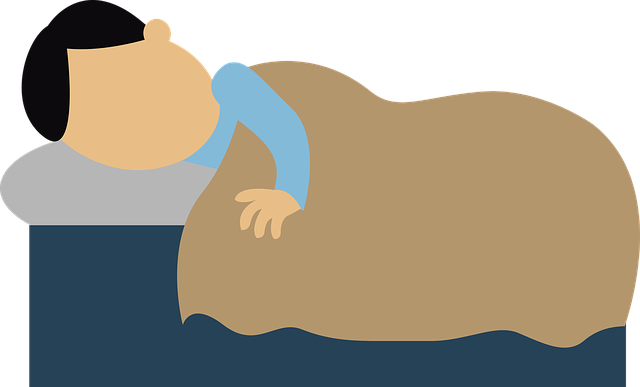Insomnia is a complex sleep disorder that affects millions of people worldwide. It is characterized by difficulty falling asleep, staying asleep, or waking up too early without being able to go back to sleep. Insomnia can be short-term (acute), lasting for a few days or weeks, or long-term (chronic), lasting for months or even years. Chronic insomnia can severely impact your mental health, work productivity, relationships, and overall quality of life.
There are two main types of insomnia
-
Primary Insomnia This type of insomnia isn’t caused by any other health condition or medication. It is often linked to factors like stress, anxiety, or poor sleep habits.
-
Secondary Insomnia This type of insomnia occurs as a result of another health condition or medication, such as depression, chronic pain, asthma, or substance abuse.
Common Causes of Insomnia
Understanding the underlying causes of insomnia can help you identify strategies to alleviate it. The most common causes include
-
Stress and Anxiety
Worrying about work, finances, or personal relationships can keep your mind racing when it’s time to sleep. Chronic stress and anxiety are one of the most significant triggers for insomnia. -
Depression
Depression and insomnia often go hand in hand. People with depression may find it difficult to fall asleep or may wake up too early. Alternatively, some may sleep excessively as a form of escapism. -
Poor Sleep Hygiene
Inconsistent sleep habits, such as irregular sleep times, excessive screen time before bed, or a disruptive sleep environment, can worsen insomnia. This creates a cycle of poor sleep that reinforces itself. -
Medications
Some medications, such as stimulants (e.g., for ADHD), corticosteroids, and certain antidepressants, may interfere with your ability to sleep. It’s essential to check with your healthcare provider if you believe your medication is affecting your sleep. -
Medical Conditions
Chronic pain, asthma, restless leg syndrome, and other medical conditions can interfere with the body’s ability to rest properly. Hormonal imbalances, particularly in conditions like menopause, can also play a role in sleep disturbances. -
Lifestyle Factors
Caffeine, nicotine, alcohol, and irregular work schedules can all negatively affect sleep. Caffeine and nicotine are stimulants that keep you awake, while alcohol may initially help you relax but disrupts sleep cycles.
Types of Insomnia Symptoms
Insomnia symptoms can vary depending on whether the insomnia is acute or chronic. Common symptoms include
-
Difficulty falling asleep at night (taking more than 30 minutes to fall asleep)
-
Waking up frequently throughout the night
-
Waking up too early in the morning and not being able to fall back asleep
-
Feeling tired, sluggish, or unrefreshed upon waking
-
Daytime fatigue, irritability, or mood disturbances
-
Difficulty concentrating or performing everyday tasks
For chronic insomnia, these symptoms persist for at least three nights a week for a period of three months or longer.
Tips to Manage and Treat Insomnia
Here’s an expanded list of strategies to help you manage and treat insomnia
-
Establish a Regular Sleep-Wake Schedule
-
Aim to go to bed and wake up at the same time every day. Even on weekends, try to stick to this schedule to reinforce your body’s natural sleep-wake cycle (circadian rhythm).
-
Set a bedtime that allows you to get the recommended hours of sleep based on your age and lifestyle.
-
-
Create a Relaxing Bedtime Routine
-
Develop a calming pre-sleep routine to help signal to your body that it’s time to unwind. Activities like reading, journaling, or taking a warm bath can help relax your mind and body.
-
Engage in deep breathing exercises or meditation to calm anxiety and stress before bed.
-
-
Optimize Your Sleep Environment
-
Make your bedroom a sanctuary for sleep. Keep it dark, quiet, and cool (around 60 to 67°F or 16 to 19°C).
-
Invest in a comfortable mattress and pillows to support restful sleep.
-
Remove distractions such as electronic devices, which emit blue light and disrupt melatonin production.
-
-
Monitor Your Diet
-
Avoid large meals, caffeine, and nicotine before bed. Caffeine, in particular, can stay in your system for up to 8 hours, so avoid drinking coffee or tea in the late afternoon or evening.
-
Herbal teas like chamomile or valerian root may help promote relaxation and support sleep.
-
-
Exercise Regularly
-
Regular physical activity, particularly aerobic exercise, can improve sleep quality. However, avoid vigorous exercise close to bedtime, as it can increase adrenaline and make it harder to fall asleep.
-
-
Cognitive Behavioral Therapy for Insomnia (CBT-I)
-
CBT-I is a structured program that helps you change thoughts and behaviors around sleep. It includes techniques like sleep restriction therapy (limiting time in bed to the actual time spent asleep) and stimulus control (associating the bed with sleep rather than stress or wakefulness).
-
This therapy has been shown to be more effective than medication for treating chronic insomnia.
-
-
Mindfulness and Relaxation Techniques
-
Practice mindfulness meditation or progressive muscle relaxation to reduce tension and promote relaxation before bed. Techniques like guided imagery or autogenic training can also help alleviate the mental chatter that may keep you awake.
-
-
Avoid Napping
-
Napping during the day, particularly in the late afternoon, can make it harder to fall asleep at night. If you need to nap, keep it to 20-30 minutes earlier in the day.
-
-
Consider Natural Sleep Aids
-
If you prefer natural remedies, supplements like melatonin, valerian root, magnesium, or lavender may support better sleep. Always check with your doctor before starting any supplements, especially if you’re on medication.
-
When to Seek Professional Help
If you’ve been practicing good sleep hygiene and still struggle with insomnia, or if insomnia is severely impacting your quality of life, it may be time to consult a doctor or sleep specialist. They can help determine if there is an underlying medical condition contributing to your sleep issues.
Some common treatments your doctor may suggest include
-
Prescription medications for short-term use (e.g., sedative-hypnotics)
-
Referral to a therapist for Cognitive Behavioral Therapy for Insomnia (CBT-I)
-
Treatment for any underlying health conditions, such as anxiety, depression, or sleep apnea
Managing insomnia requires a combination of lifestyle changes, healthy sleep practices, and, when necessary, professional support. By understanding the root causes of your insomnia and implementing strategies like relaxation techniques, sleep hygiene improvements, and cognitive therapy, you can regain control of your sleep and improve your overall quality of life.
Take the first step today by making small adjustments to your bedtime routine and environment, and be patient better sleep is within your reach


